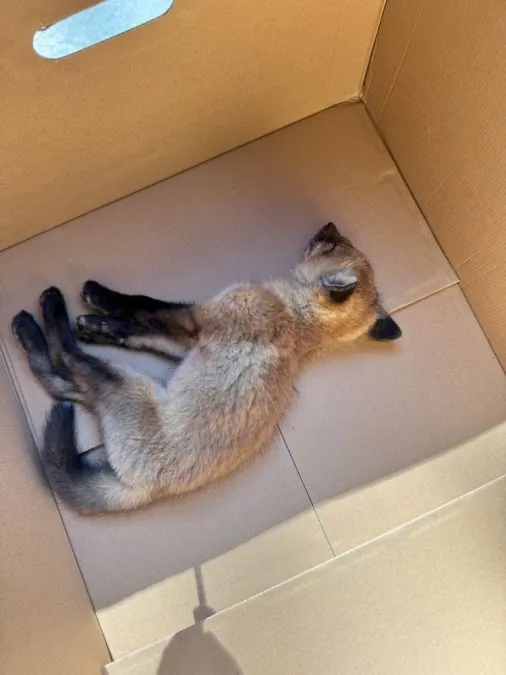
Shock in Chute-à-Blondeau: Rabid Fox Found with Unusual Bat-Variant Rabies
2025-06-23
Author: Charlotte
In a startling turn of events, a rabid fox discovered on a property in Chute-à-Blondeau was euthanized after being diagnosed with a type of rabies typically associated with bats, instead of the usual strain found in foxes.
Local resident Janet Cote reported that she and her husband, Alan, had been watching a family of foxes near their home for five years. This past April, they welcomed five adorable kits into the mix, and the couple enjoyed witnessing their playful antics from their living room.
However, by early May, alarm bells started ringing. One kit was noticeably smaller and seemed lethargic, prompting concern. Janet recalled, 'On May 11, we noticed the little one lying on the lawn, not moving for an hour. We feared the worst and decided we had to help.'
Alan approached the small fox wearing gardening gloves, discovering it was still alive. He carefully transported it to their front yard and placed it in a cardboard box. Janet quickly contacted Holly’s Haven, an animal rescue center, to seek help for the sick kit.
Tragically, on May 12, Holly’s Haven informed Janet that the fox had suffered seizures and had to be euthanized. Following the procedure, the fox was tested, and on June 13, the shocking news arrived: it had rabies.
Health officials from the Eastern Ontario Health Unit (EOHU) swiftly reached out to investigate any potential risk to Janet and Alan. Thankfully, Janet had avoided contact with the sick animal, but out of caution, Alan received rabies treatment at a local hospital.
EOHU Medical Officer of Health Dr. Paul Roumeliotis noted that initial tests did not confirm the specific rabies variant but speculated that a bat may have bitten the fox or it could have encountered an infected dead bat. He reassured the public that the type of rabies would not alter human treatment protocols.
Approximately 16% of bats harbor rabies, making it crucial for anyone who suffers a bat bite to seek medical help immediately. Dr. Roumeliotis emphasized the importance of vaccinating pets against rabies to protect them and prevent any transmission risks to humans.
According to Mike Fenn from the Ontario Ministry of Natural Resources (MNR), such transmissions of bat rabies to non-bat mammals, though rare, occur a few times each year. The last instance in Eastern Ontario involved a skunk back in 2018.
Fenn concluded, 'While it's not common for bat rabies to affect other species, it can happen with foxes and other scavengers.' Public education and pet vaccinations remain the most effective defenses against this serious health threat.









 Brasil (PT)
Brasil (PT)
 Canada (EN)
Canada (EN)
 Chile (ES)
Chile (ES)
 Česko (CS)
Česko (CS)
 대한민국 (KO)
대한민국 (KO)
 España (ES)
España (ES)
 France (FR)
France (FR)
 Hong Kong (EN)
Hong Kong (EN)
 Italia (IT)
Italia (IT)
 日本 (JA)
日本 (JA)
 Magyarország (HU)
Magyarország (HU)
 Norge (NO)
Norge (NO)
 Polska (PL)
Polska (PL)
 Schweiz (DE)
Schweiz (DE)
 Singapore (EN)
Singapore (EN)
 Sverige (SV)
Sverige (SV)
 Suomi (FI)
Suomi (FI)
 Türkiye (TR)
Türkiye (TR)
 الإمارات العربية المتحدة (AR)
الإمارات العربية المتحدة (AR)